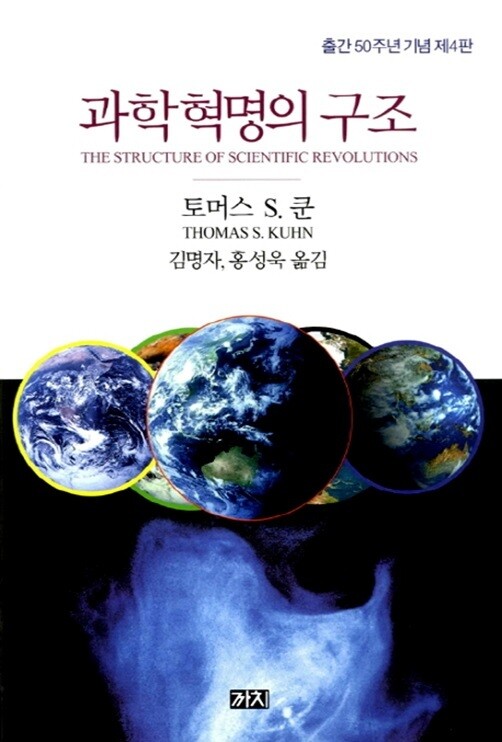Medical Department Narrative of Kim Joon Hyuk (59)
Seeing the Illusion of “Pure” Science in “Searching for Money”
Money Look Up movie poster. Source: Daum Movie
Many of the scientific agendas in modern society are political. Nuclear power, the climate crisis, genetic manipulation, and even the response to COVID-19, we often find it difficult to determine whether this is scientific or political work. And in many cases, politicians appear to be setting the prophetic cry of science against their own interests.

The movie that takes this idea to an extreme is Money Look Up, which will be released on Netflix in late 2021. An astronomer discovers an approaching comet that will destroy the world, warns of a crisis and demands an answer, but a system blinded by matter and force ignores it and leads to disaster. . First, I totally agree with what the film criticizes, as it is a satire of the former Trump administration in the United States that prioritized interests and ignored the apparent climate crisis. However, it is questionable whether the science versus politics framework is valid. I don’t want to argue the fact that there is a collisional structure. You can fight anything. “Finding the money” seems to be the talk. Because science is a mechanism for the search for truth, it can never be wrong, and politics is a cancerous presence in society that only distorts the search for science for its own benefit. Although this setting seems unintentional, it is a “find money” issue, no, it’s a bug. The way science searches for truth is no longer defined as a “genius” scientist like Einstein discovering the secrets of nature and revealing them to the world. The current way of recognizing the validity of science is peer review, the movie emphasizes, and the fact that discovery is recognized through peer review and the scientific community means that the process of scientific discovery is also a political one. If this means that politics is a bargaining activity and a policy to modify mutual understanding and maintain social order. Before getting into this idea, let’s briefly review the content of the movie. Next, consider the idea that science is deeply involved in political activism.
“Find money”, where to look?
Michigan State University astronomy professor Mindy (Leonardo DiCaprio) and doctoral student Debaski (Jennifer Lawrence) are delighted to discover a new comet, but discover that its orbit is toward Earth and that the collision will destroy humanity. Report this fact. Dr.. Oglethorpe (Rob Morgan), the director of the Joint Ground Defense Headquarters, takes them to the President and informs them, but the President (Meryl Streep) and his team are not concerned because they are focused on issues related to the elections. On the contrary, they make fun of an academic at the local university saying that they don’t know what to do. The three are angry but helpless. Shortly thereafter, the President met them again and sought help from other “famous” scientists, but they know they made this choice because the comet’s response helps the President and the current leadership maintain their power. Either way, the three are sure that the planet can be saved by destroying the comet. However, the comet’s plan to destroy the comet is thwarted when the group’s CEO Peter (Mark Rylance) interferes with the plan. Peter attempts to implement a plan to fragment the comet and delay it on Earth, saying the comet contains huge resources, while Mindy and others oppose the process, claiming it is a dangerous project that has not been peer-reviewed but is being delayed. . The frustrated three realized that they were now closer and could see the comet with their own eyes, so they launched a “search” movement. Look at the sky, there is a comet. Conservatives, including the president, launched a “find the money” movement against him. Don’t believe them, we can use comets to our advantage. Which of the two wins? “Money Look Up” is a poignant satire of a situation in which science is frustrated by real politics. Just as in the movie, you “shouldn’t look” at the comet of Earth’s destruction, in fact, politicians sing “you shouldn’t look” at the obvious scientific facts just for their own gain. A typical example is the climate crisis. While we are already witnessing many abnormal symptoms such as wildfires, hurricanes, stifling heat and cold seas due to the climate crisis, some are raising their voices loudly and shouting that the climate crisis is a relief. However, even if the movie’s argument is true (and the climate crisis is a fact that no one can deny), the movie seems to contain the argument that science contains “pure truth”. Money Look Up scientists have examined policies and media that have misled their scientific truth. But is science this purity?

A scene from the movie Money Look Up. This is an image that clearly shows the mix of science (on this side) versus politics (on the other side) that takes place in the film. Source: Daum Movie
The scientific revolution and the scientific community
Even if we have never heard of a theory of science, that is, an evaluation of the activities or undertakings of science itself, we use the term ‘model’ every day. It was Thomas Kuhn who described the change in science with this phrase, which seems to be used almost synonymously with innovation (“this product introduces a new paradigm”). Kuhn refutes previous ideas about science through the “structure of scientific revolutions”. It is an assumption that science is like a train on a straight path of progress. Science continues to grow by building a ladder of continuous development above previous knowledge. See the achievements of modern science in the twentieth century! However, Kuhn’s concept of science was very different from that of progress. He cites Copernicus and others as examples of the Scientific Revolution, saying that science before and after it are two different ways of looking at different questions. It is the model upon which each of these sciences is based. The heliocentric theory that the sun revolves around the earth and the heliocentric theory that the earth revolves around the sun are two models. This is what scholars generally accept. Since the two covenants were conducting scientific research based on different scientific worlds and paradigms, they understand the results of research in different ways. It is not individual genius that drives the development of science here. Only when these observations accumulate to form a framework for a theory many subscribe to can science advance to the next level, the next paradigm. Here we can say that the idea that science itself is a framework for the search for truth, and that through scientific research we can always arrive at pure truth, is false. It is by no means intended to deny the science itself here. Science is and always will be a tool of discovery and change that we can rely on. However, the process of establishing the truth is not just a “vision”, but rather the consensus of the scientific community. Consensus is not achieved through unanimous voting, but through a process in which competing claims conflict with one another, like many social issues. Here, the reason why each other’s claims are in conflict is the different assumptions, beliefs, and core values that each party assumes. In other words, science also comes to a conclusion through the politics within it.

Thomas Kuhn “The Structure of Scientific Revolutions”. Source: Kyobo. Wrote
Politics is also included in scientific judgment
As in many cases of World War II, there are many instances where science has been misused in politics, but this is not the situation being addressed here. When someone defends or criticizes political choice through science, he is not trying to categorize matters as purely “scientific fact”, it is also a political act. For example, when someone talks about the ‘science’ of the virus and defends or criticizes government quarantine policy, it is not an assessment of the policy from a position that has nothing to do with politics or a diagnosis of whether it is true. Wrong, wrong, but rather an assessment of the policy. Political action and the decision itself. This is because his paradigm, i.e. the set of opinions or beliefs he has that judge the content of “science”. Cutting data from a particular value judgment and then accusing the other side of saying it is “science” or defending our side cannot be convincing just because it has gone through “the science”. While this is a hypothetical case, let’s say you make an argument in support of the current quarantine policy. Given the state of Hong Kong, where the number of deaths per day exceeds 250, Hong Kong has a stronger quarantine policy than Korea, but it cannot be stopped. Going further, suppose it is reasonable to move the quarantine policy in the direction of gradual easing, or even abolition. Instead, the current quarantine policy has become an obstacle and unable to save patients with severe COVID-19. It is true that the situation in Korea is better than in Hong Kong, as the number of patients far exceeds the capacity of the medical response in Hong Kong and the seriously ill and dead are not treated. Currently, Hong Kong has a stronger social distancing policy than Korea. But why Hong Kong? Why should we compare Korea and Hong Kong? Why has Hong Kong followed a similar path to Korea so far? It is true that Hong Kong’s policies, acceptance of quarantine, citizen’s approach, etc., have shown a significant difference from Korea in many ways. Instead, why not look at the case of Taiwan, where the total number of deaths as of March 9, 2022, while maintaining good quarantine measures, was 850? Next, the argument that the current quarantine policy is an obstacle to the management of critically ill patients and that it needs rapid changes seems reasonable, given the current increase in the number of confirmed cases and deaths. However, is the current death toll just a limitation on the quarantine policy that has not kept pace with the current change? Nor have we considered the possibility of more deaths in the future, as there were patients beyond the capacity of the medical response, and it is not a contradiction to say that this is merely a limitation of the current quarantine policy. I don’t want to be held responsible for not doing that, although there is a way to breathe so the health care system can respond by preparing for a certain number of patients first, and even temporarily implementing stronger distancing policies should more patients occur. We realize that it was also a political choice and that in the process we have always made a political choice through medicine and science. We need science and politics together, but science alone or politics alone cannot be the answer. Junhyuk Kim/Professor, Medical Ethics Specialist at Yonsei University [email protected]

“Wannabe internet buff. Future teen idol. Hardcore zombie guru. Gamer. Avid creator. Entrepreneur. Bacon ninja.”

